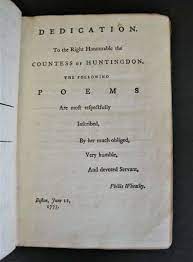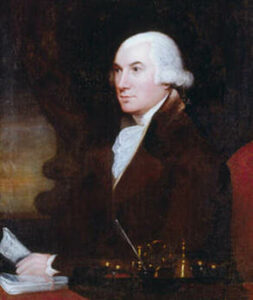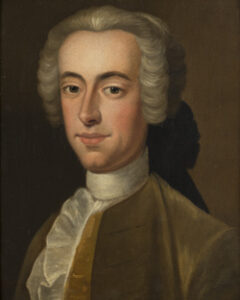Americanism Redux
June 15, your today, on the journey to the American Founding, 250 years ago, in 1773
Three ties that bind, British to colonial British, colonial British to British.
But what is in the ties, and will binding become a bond or a bounding?
* * * * * * *
Hand me that pen. Yes, paper, too. I’ll get the ink. Now stand back and leave me alone. I’ve never been more furious in my life.
And that’s surely true. Driven by anger, he’s practically frothing at the mouth.
It’s Samuel Henley, a Christian minister in Williamsburg, capitol of the colony of Virginia. He’s English by birth and a not-long-ago transplant to Virginia by necessity, an immigrant as he might be called. No one really thinks of him that way because he’s put in the time to make the right friends, know the right people, join the right groups as evidenced by his recent appointment as Secretary of the “Society of Useful Knowledge” in Williamsburg. He had expected to be named Rector at the Bruton Parish church in Williamsburg but, shockingly, the position went to someone else, to another moved-in Englishman, no bloody less. Today, 250 years ago, scratching out an essay with such fury that the pen might slice the parchment, Henley launches an opinion war in the town’s newspaper. He’s castigating the new rector and the people who support him. They will feel the wrath, both his and His, Henley is certain. Damn them, they’ve caused the split.
(ground zero in Henley’s opinion war, Bruton Parish Church in Williamsburg)
Breathe, just breathe. Black teenaged poet Phillis Wheatley tells herself to stay calm in an excited state. She’s in London where only a few days ago her first book was published, entitled “Poems on Various Subjects Religious and Moral.” It’s the result of financial support provided by the Countess of Huntingdon. Phillis writes of her gratitude to the Countess in the first pages of the book. Two women, one white, aristocratic, and English-bred who paid for the paper, binding, printing, and distribution, and one black, enslaved, born in West Africa and borne from there to a Boston household who wrote every word and developed every thought between the book’s covers. Today, 250 years ago, Phillis knows every day ahead will always have her first book in it.
(Phillis’s first page)
Another partnership joins people together on this day and it also has a British-colonial British connection. Merchant Joshua Johnson monitors the comings-and-goings of credit, debt, goods, currency notes, and reputations as they flow east and west between London, England and a handful of partners in the British colony of Maryland. Via letters that must always reflect the uncontrollable six-, eight-, ten-, or twelve-week time lag in ocean-crossings, Johnson writes relentlessly about a further problem of time that can be controlled but often isn’t—he warns the Marylanders of letting too much time pass in doing what they have pledged to do, promised to do, contracted to do. Johnson notes that these days the focus has intensified on people immediately satisfying expectations. It’s a difficult fact of life, says Johnson, who adds: get used to it because it’s not changing.
(Joshua Johnson)
These are three expressions of British-colonial British, today, 250 years ago.
Also
Lord God Almighty, they’re finally out. Hot and fresh. In the news as read in newspapers and spread by word-of-mouth. By tonight, many a home and many a tavern will be lit up by blazing fires in the hearth and embittered talk around the table.
The secret letters that have increasingly dominated conversations throughout Boston and the towns, villages, hamlets, and scattered homeplaces in its environs—these letters are now public and the reaction grows more intense by the hour.
Though dozens of politically active people knew their contents by now, the letters were released to a newspaper by John Adams, today, 250 years ago. No one knows who acquired the letters but a few whispers have mentioned the name of Benjamin Franklin as a first gatherer or pilferer, depending on your preference for colonial rights or imperial power.
The private letters were written, four to five years ago, by Massachusetts Governor Thomas Hutchinson, Lieutenant Governor Andrew Oliver, and a couple of their colleagues. The writers have one topic: current political happenings, problems, and crisis points in British-British colonial relations, specifically, in Boston and Massachusetts of 1768-1769. The writers are descriptive, honest, open, and straightforward. They favor British imperial power, authority, and rights while criticizing the behavior of those who protest in favor of colonial rights. They make suggestions and recommendations that, they believe, will strengthen the British cause and the British system in the colonies.
As for their adversaries, Hutchinson, Oliver, and the rest advocate for their defeat and warn of an awful future should the pro-colonial side win. For the letter-writers, action must be taken. For the letter-readers, action must be taken. Both sides agree—tomorrow is too late, 250 years ago today.
(Thomas Hutchinson)
For You Now
The fire has started.
At the base of a pillar holding up a connection within the British empire, a fire is now burning. The flames look like letters on parchment, written yet shimmering, a scorching orange and red, smoke peeling upward from the top and the tips. Leaping from attitude to attitude and belief to belief, within lives made tinder by strictures, scarce hope, and lack of contentment, the flames are loosed and growing. Boston is burning and a choking cloud spreads across the colony of Massachusetts.
In a key way, the events and actions and people you know as the American Revolution commences on this day, 250 years ago. A call for the impeachment and removal of Hutchinson and Oliver roars forth. The River turns.
We won’t soon see soldiers, weapons, military units, or battles. We’re yet to hear the speeches and the statements of an aspiring new nation. We’ll later encounter a few familiar moments involving tea and a party, a night-time ride and dawn-time clash, the meeting of a few men. Much will need to happen, consisting of decisions among options and choices among consequences, before those points are reached. It will be fascinating to know. It is human, it is woven, and it is a mess.
The fundamental turn, though, is here, as a new direction takes hold. The personal faces of the distant ruler—for that is what Hutchison and Oliver are in the context of George III—are now, one, the immediate targets of elimination; and, two, opening up the possibility of who or what replaces them; and, three, in the name and nature of something unique and organic to the people electrified by things called rights.
Today the River turned.
Suggestion
Consider whether, in your view, the largest and most important issues of our time have distilled down to a face, a moment, or a tangible representation like these secret letters.












